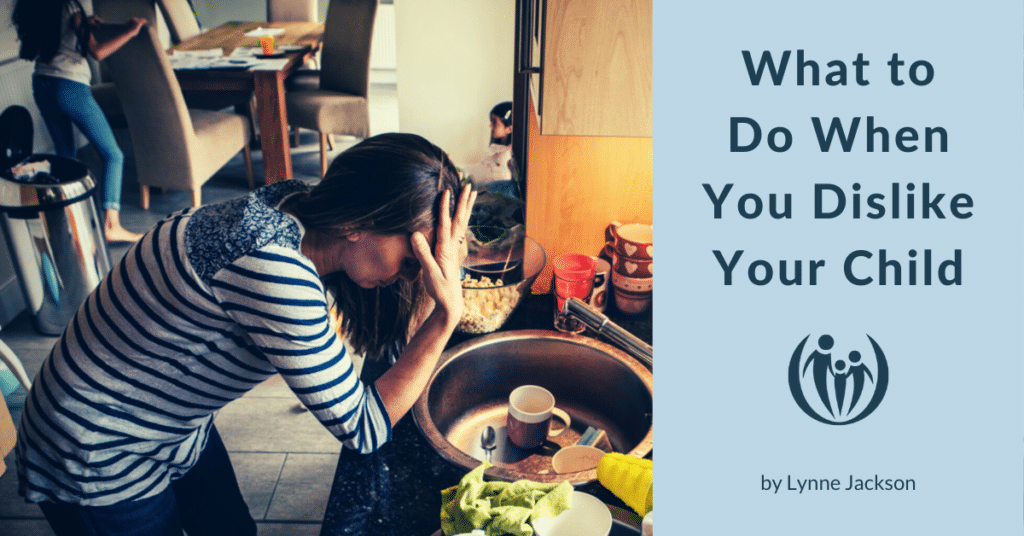
What to Do When You Dislike Your Child

During the very difficult years of early parenting, I would go through long times of despair, as well as periods of dislike for one or more of my children.
I felt horribly guilty as well as angry with my family and myself. I was frustrated because I couldn’t find methods and answers to fix my extremely lively, strong-willed, struggling kids.
I remember one of those dreadful nights: Jim was working. The youngest child was sick, and the other two were overwhelmed with homework. As they continued to ask for me all at the same time, I grew more and more frustrated, resentful, and harsh. Kids fought, whined, criticized dinner, and frequently disobeyed me. I felt like I was ready to pull my hair out — but I was too frazzled to figure out what was really happening.
The next morning, I dragged myself to God’s Word, as I often do when discouraged, and received the reorientation to the truth that helped me see more clearly. Looking back on the experience of the previous night, I prayed through the following helpful questions. Here’s what I realized:
What were my emotions and responses?
- I felt frustrated by the chaos.
- I was resentful of Jim’s absence and the kids’ simultaneous requests for help.
- I became increasingly impatient and harsh, and then felt guilty.
What underlying false beliefs produced those emotions/responses?
- Life should not be chaotic. Or, at least, I shouldn’t get stuck with the chaos by myself.
- My children shouldn’t be asking for more than I can give.
- It’s my job to keep my children happy, or at least stop them from whining and demanding.
What did I inadvertently communicate to my children by my response?
- Life is stressful and that’s bad.
- Your needs make me upset.
- Jesus doesn’t help me when I’m upset.
What is true?
- “Chaos happens.” I don’t have to make it stop or try to keep everyone happy.
- It’s OK, and even good sometimes, for children to wait for help.
- Jesus’ presence can bring peace in chaos and mercy when I struggle.
As I learned through this experience, chaos as a parent is virtually inevitable! But what’s not inevitable is how I respond. Do I blow up or melt down? Do I try to manage life so similar situations can’t occur? Do I revisit and pray about what happened? Do I seek Scripture and the wisdom and teaching of mentors? Do I talk with others and with God? Do I identify my false core beliefs and identify and repeat the true biblical beliefs that I’m seeking to embrace? Do I stumble? Do I start over again?
In the years since that chaotic night, I’ve realized that seeking God’s truth with these kinds of questions has been far more significant than any parenting methods I ever acquired.
Apply It Now:
- Think of a recent situation where things just seemed to get out of hand and you aren’t sure why.
- Take some time to prayerfully reflect and/or journal about the above questions in regards to the situation. What was really going on? What are some truths you could repeat to yourself next time?
- If you’re having trouble identifying your core beliefs or working through them, consider contacting us about parent coaching.
This post is an excerpt from our book, How to Grow a Connected Family.
What are your parenting strengths?
You’ve got them. Knowing your strengths will help you become the best parent you can be. Knowing your parenting challenges is useful information too. Take our FREE ASSESSMENT.

